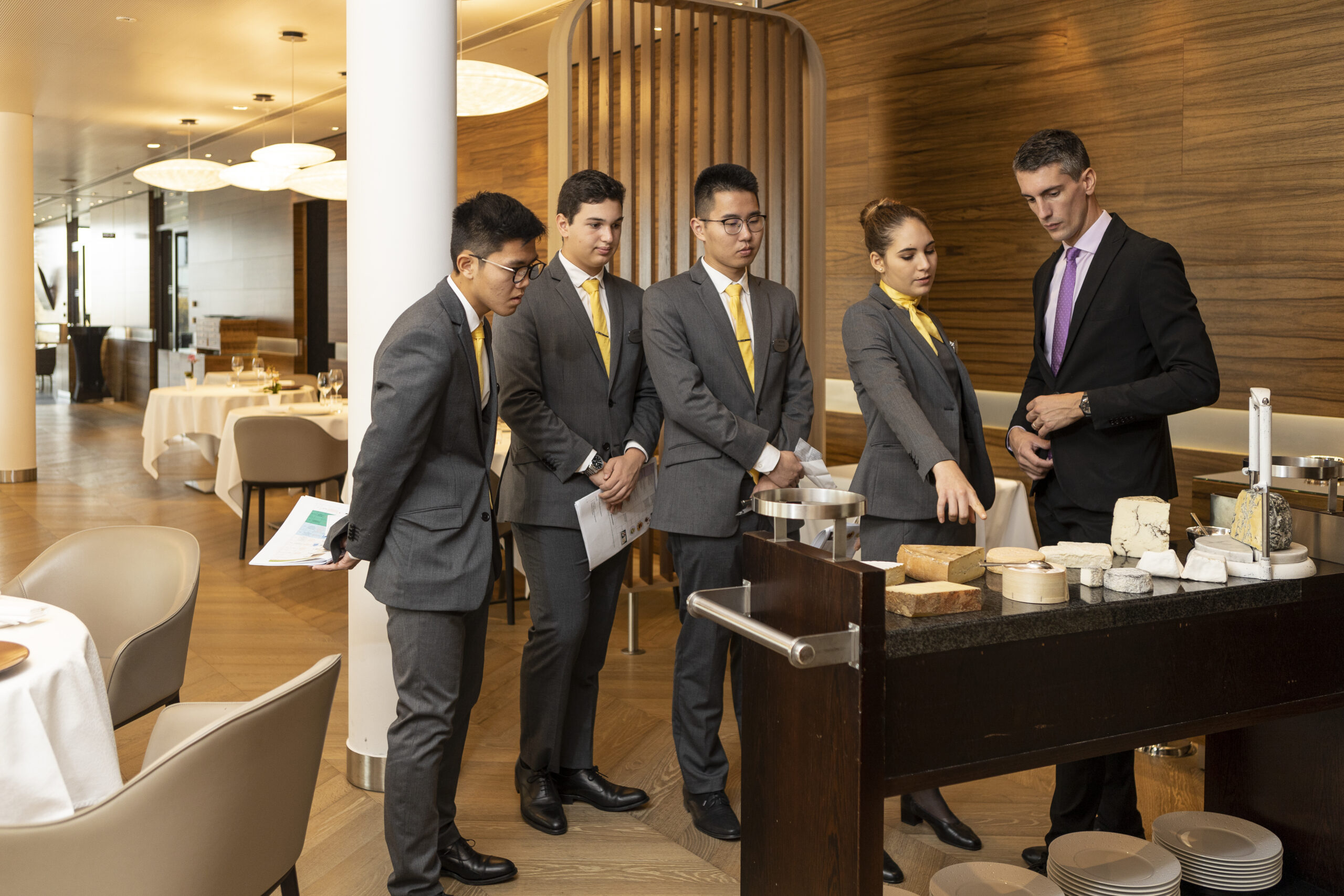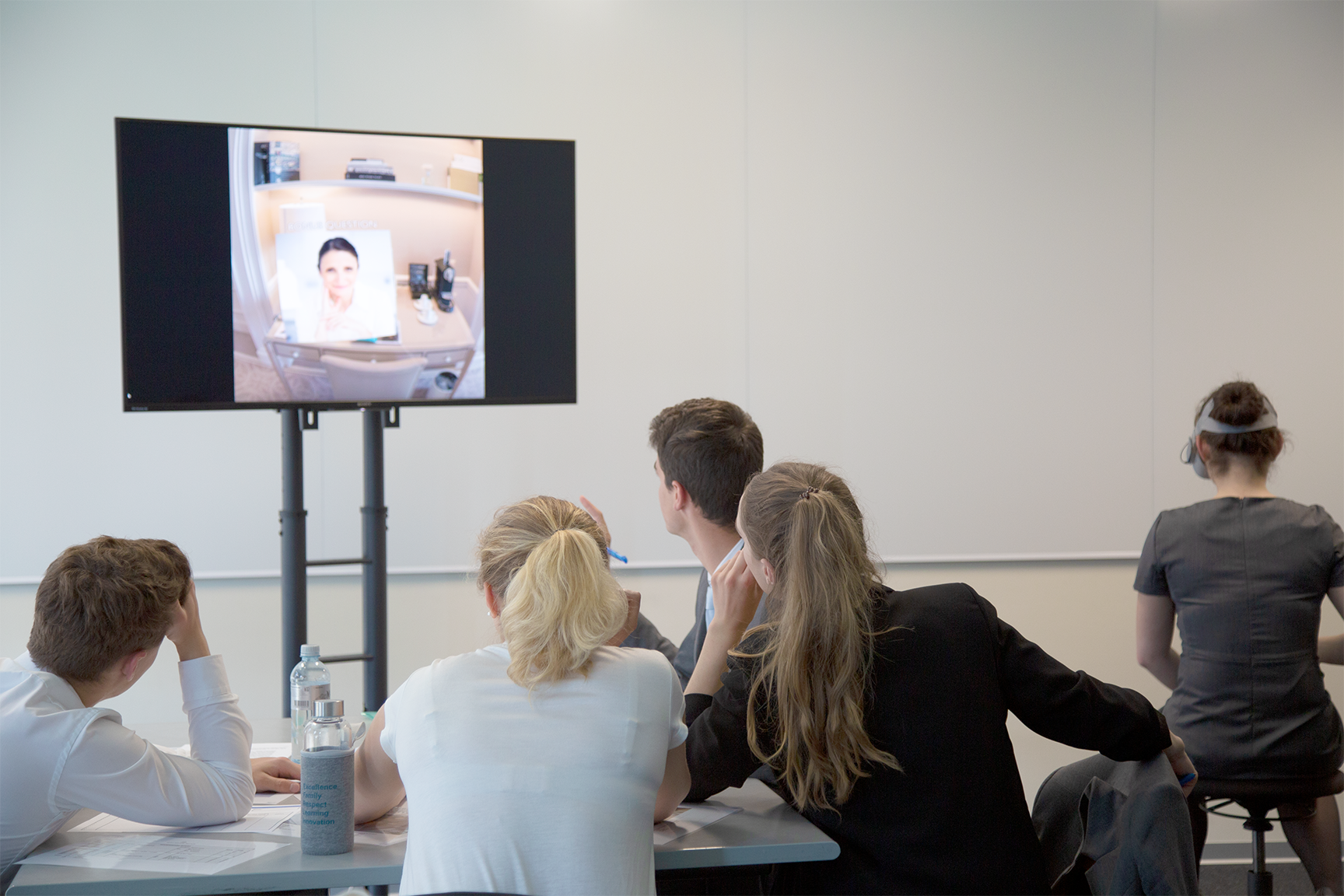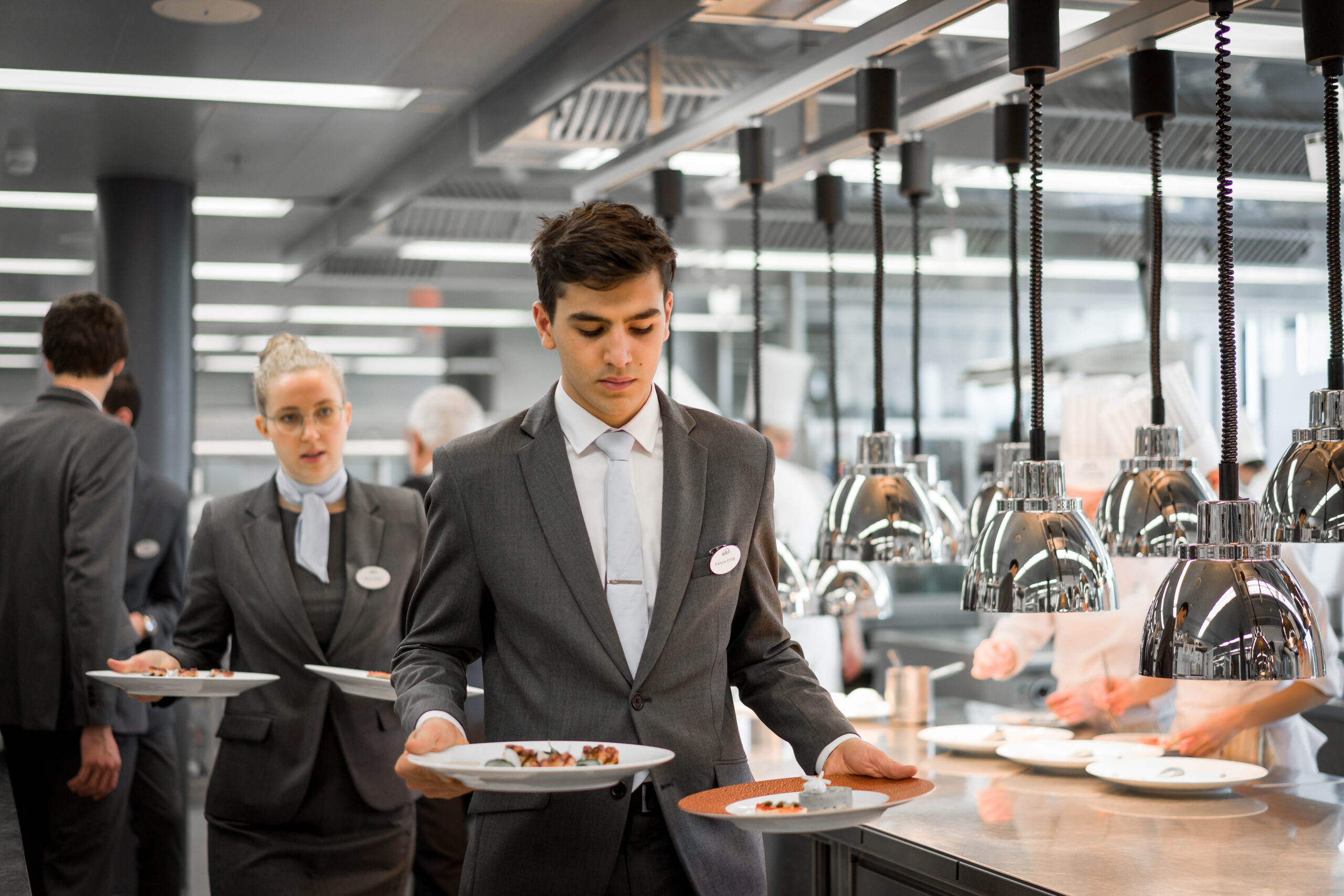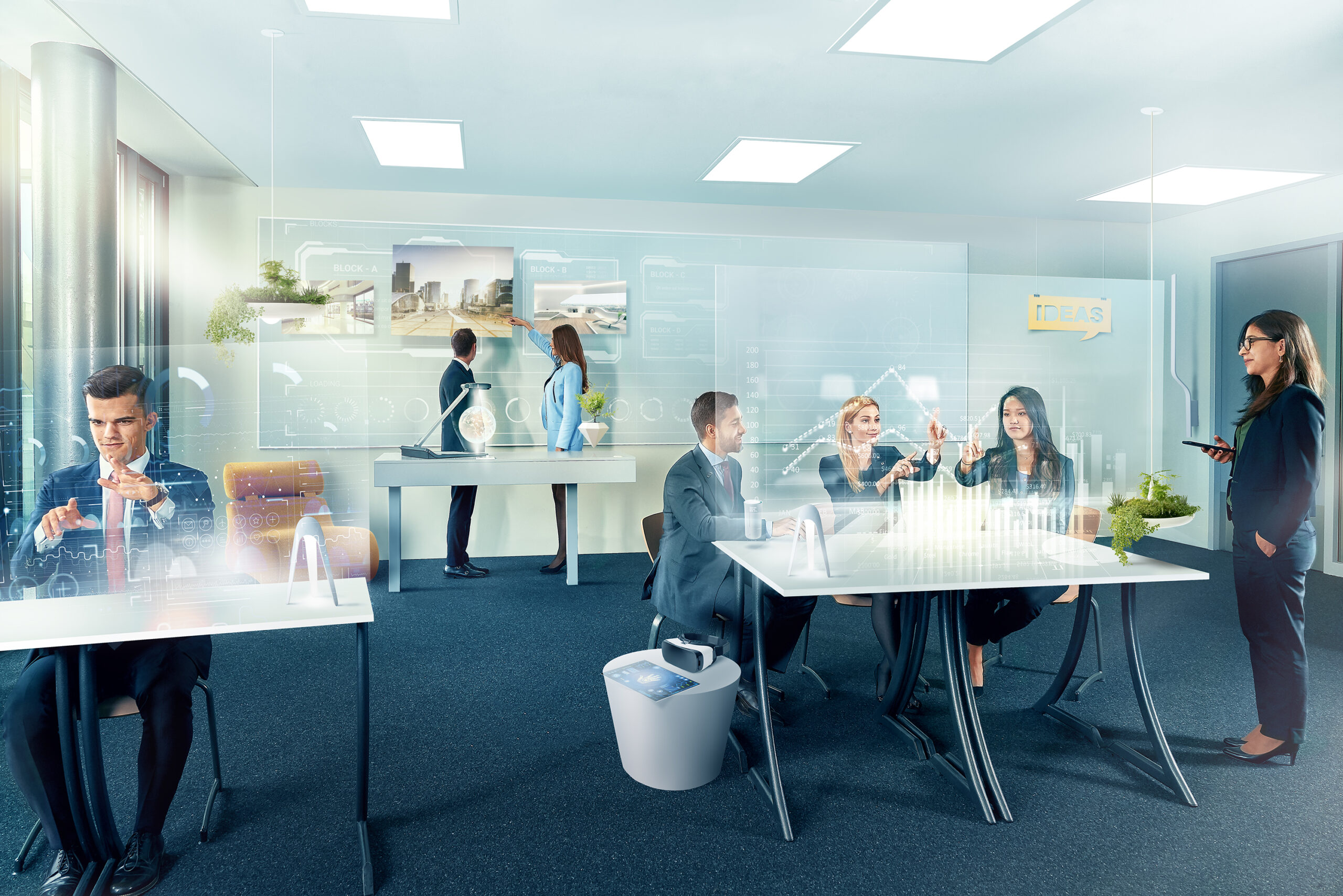Despite many jobs in travel being lost as a consequence of the pandemic, Swiss hospitality management university Ecole hôtelière de Lausanne is making sure that students of tomorrow are equipped for digital-first learning, non-linear careers and the rise of robots. By Jenny Southan
When it comes to learning the skills required to work in hospitality, there may not be anywhere better in the world to study than Switzerland’s Ecole hôtelière de Lausanne (EHL), which has been operating since 1893.
EHL has always been a pioneer when it comes to preparing students for a career in hospitality (and beyond, as about 50 per cent of alumni end up working in other fields such as wealth management, sales, luxury retail and consulting) and has an expansive campus hosting almost 3,400 students (when they’re not in lockdown).
In addition to having a start-up campus for budding entrepreneurs and its own Michelin-star restaurant (run by students), one of the best examples of Ecole hôtelière de Lausanne’s innovative approach is the way it has adapted its education offering for the Covid era, at a time when the travel industry is in crisis and people aren’t allowed to spend time together face-to-face. Realising that all teaching would have to move online earlier in the year, it accelerated the roll-out of its HyFlex (hybrid flexible) model of learning that not only includes online lectures but the incorporation of videos and gaming, and even online exams with special “anti-cheat” technology.
Realising that all teaching would have to move online earlier in the year, it accelerated the roll-out of its HyFlex (hybrid flexible) model of learning that not only includes online lectures but the incorporation of videos and gaming, and even online exams with special “anti-cheat” technology.
Remi Walbaum, chief innovation officer, tells Globetrender that the future will be about “blended learning”. He says: “The only thing that we’re keeping in a practical way is the preparatory year – a year you have to complete before you enter the Bachelor programme – and that one is in person. We still have students who are in kitchens and doing housekeeping.”
EHL offers a number of different hospitality management degrees, ranging from a Bachelor of Science qualification (full-time for four years), to a Master’s (full time, 16 months) and Executive MBA (full time, 11 months).
There is also an MBA in Hospitality that 80 per cent online, as well as various short courses (EHL says its Culinary and Restaurant Management certificate is ideal for people switching career and for entrepreneurs).
Of course, Covid is severely restricting people’s ability to travel and live aboard, so its roster of online-only hospitality certificates are highly convenient for the Covid age. (Options include Real Estate Investment and Driving Hotel Revenues). That said, intake for September 2020 saw a record number of applicants.
Will remote learning make your courses more affordable (the BSc costs approximately 30,000 Swiss Francs/£25,000 and year)? Walbaum says: “The delivery is, as you say, not cheap. The education we will provide in the future in our new programmes will be more affordable in that it will be shorter and more regular. “We anticipate that people will embark on a journey with us for some years and that they will be able to have some intakes of education at the time they need it and at the price they can afford. But the concept of having a Masters or a Bachelor of Science in hospitality education will remain for some time – it is not something that will disappear tomorrow, and people are still prepared to invest in that.”
“We anticipate that people will embark on a journey with us for some years and that they will be able to have some intakes of education at the time they need it and at the price they can afford. But the concept of having a Masters or a Bachelor of Science in hospitality education will remain for some time – it is not something that will disappear tomorrow, and people are still prepared to invest in that.”

Ecole hôtelière de Lausanne’s ultimate ambition is to train a million people worldwide, and key to this will be its e-platform. Walbaum says: “The learning platform we are building will allow us to use trainers from all over the globe.”
Designed for companies who want to upskill their employees, a prototype with the Swiss hotel association will be officially launching in 2021. “If [companies] need a programme to enhance the quality of their service of food and beverage or housekeeping, then we are capable of putting together [bespoke] online and offline content,” says Walbaum.
Are you offering any special training now for staff for working in hospitality in the age of Covid-19? Walbaum says: “Yes – our consulting company has produced a programme for hotels who want to make sure they’re Covid-compatible and we advise them on how to implement the necessary measures in order to be compatible with the legislation of their country.” Ecole hôtelière de Lausanne is also expanding its physical presence internationally with the opening of a new campus in Singapore next summer but with this shift towards remote learning, how will EHL maintain the high quality of Swiss education that it is famous for?
Ecole hôtelière de Lausanne is also expanding its physical presence internationally with the opening of a new campus in Singapore next summer but with this shift towards remote learning, how will EHL maintain the high quality of Swiss education that it is famous for?
Walbaum says: “You need to have a process in place that is very sustainable and that you make sure is followed, and the requirements that you put forward for the systems need to be very high level. The Swiss are known for doing this well.”
He adds: “What we have learnt is the blended model is feasible but what we are now looking at is what can be taught valuably online, and what cannot be taught online, and that still needs to be done because we are right in the middle of the crisis.” For example, certain housekeeping tasks can be taught using virtual reality, while trainee chefs will need to smell, taste and use their hands in a real kitchen.
One of the key things for companies and prospective students to think about in the viral age, when everything has been turned upside down, is that the skills acquired at EHL are highly transferable. So if an investment in education is going to be made, even if the future is unclear, its courses will likely give way to exciting opportunities. Walbaum explains: “A lot of industries are looking for people from a hospitality background to embed into their process. We think that if we are doing our job well, it is perfectly fine that some of [our alumni] go into another industry because a career path is not a straight line. You could come back to hospitality one way or another.”
Walbaum explains: “A lot of industries are looking for people from a hospitality background to embed into their process. We think that if we are doing our job well, it is perfectly fine that some of [our alumni] go into another industry because a career path is not a straight line. You could come back to hospitality one way or another.”
As Ecole hôtelière de Lausanne says, the most important characteristic of being a pioneer is the ability to “adapt constantly”. So what will be the future of customer-centric hospitality in a world that will soon be dominated by artificial intelligence (AI), the rise of robot staff and digital interfaces?
Walbaum is unfazed. “You’re describing something that for me is unlikely to happen,” he says. “This first thing is that AI is serving the purpose of people working in the business, and the business we’re in is hospitality, and hospitality requires the human touch. So I would not put AI as the future of our business, I would put AI as a tool to serve our business.
“The second thing is, yes, AI is going to have a drastic impact on some jobs such as a procurement manager or F&B manager. But it is our role to adapt to that and train the staff to be able to use those tools and implement them in their favour.
“There will always be a human touch – I am not convinced robots will have a drastic impact on the way you serve people. It depends on the quality and the price you’re paying, but you will always require some human touch, especially if you are in the upper range, top-star hotels. Nobody will want to go on vacation on the beach in Bermuda and have a robot following them around.”






